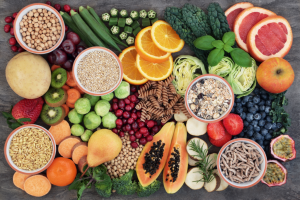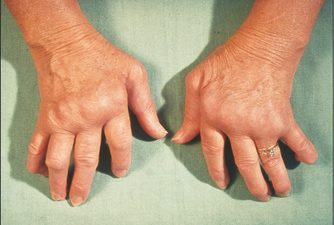With age, most people feel increased fatigue, decreased mood, lethargy and deterioration of cognitive processes (memory, attention, and others). Medicine is not yet able to completely stop age-related changes. But to prolong activity, to maintain well-being and mental abilities is available to everyone.
The digestive system is the “door” through which nutrients, trace elements and vitamins enter the body. Its condition determines the speed and quality of admission, and can also be the cause of losses.
How it works
The gastrointestinal tract is covered throughout by a thin mucous membrane, each section of which has its own characteristics, depending on the function.
In the stomach and duodenum, food is broken down into simple components, and the jejunum and ileum provide direct absorption. Microvilli on their mucous membrane work according to the “pump principle”, and the “working” surface area reaches 200 m2.
“Rich” blood supply to the stomach and intestines not only ensures the efficiency of nutrient intake into the blood, but also causes a high risk of bleeding (with ulcers and erosion).
At risk
In old age, the first symptoms of a lack of “the most demanded and vulnerable” substances, most often iron, appear, and after a couple of years of chronic gastritis, signs of vitamin B12 deficiency can be noticed. Both compounds are not synthesized in the human body and come only with food, mainly of animal origin. And for the normal assimilation of B12, among other things, the participation of the internal Castle factor, synthesized by the stomach, is necessary.
Iron is involved:
in oxygen transport (as part of hemoglobin),
in the creation of “oxygen reserve” in skeletal muscles (as part of myoglobin),
in the synthesis of steroid hormones (as part of cytochromes),
in the neutralization of products of free radical reactions,
in energy production (cellular respiration),
as well as in inflammatory processes (as part of intracellular enzymes).
Vitamin B12:
participates in the synthesis of red blood cells,
improves the absorption of iron,
supports fat metabolism and normalizes appetite,
has a beneficial effect on the liver and muscles,
prevents damage to nerve tissue and improves cerebral circulation,
participates in the synthesis of acetylcholine, which is responsible for memory and learning
and performs many other functions.
It is obvious that iron and B12 deficiency affects almost all body functions and manifests itself symptomatically:
anemia (lethargy, weakness, fatigue, dizziness, tachycardia, deterioration of the skin, hair and nails, poor healing, chronic inflammatory processes),
damage to the nervous system (loss of memory and attention, depression, headaches),
an increase and disruption of the liver,
hormonal disruption
and other deviations.
It is worth noting that the lack of nutrients is observed not only with malabsorption, but also with their “excessive consumption”. Thus, chronic inflammatory and oncological processes “excessively absorb” iron, and “bleeding” ulcers and erosion – contribute to latent blood loss.
How to check
The importance of iron and B12 https://en.wikipedia.org/wiki/Vitamin_B12 to the body is difficult to overestimate, and regular monitoring of their levels can help maintain activity, wellness and mood.
Analyzes do not require preparation and are available for delivery separately:
serum iron,
ferritin = iron depot (in pathology, it decreases earlier than the iron level),
transferrin = iron transporter,
vitamin B12.



